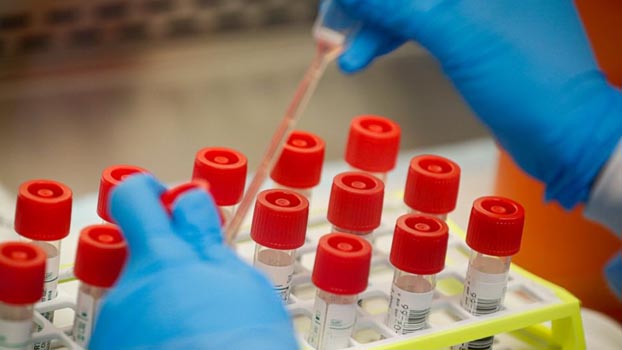Experts stress on greater number of corona tests
Situation of actual infection is not yet known

Medical experts strongly recommend expanding coronavirus testing facilities in order to know the actual situation of outbreak of the virus amid the communities in the country. On 10th of April a total of 1,297 sample were tested and the number on 11th April came down to 954. On 12th April it jumped back again to 1,340 suspected samples. Sunday’s test data marked a 13 percent rise in the total number of sample tests against the previous day.
Department of Health’s data shows that since Saturday 8,313 suspected samples were collected and sent for laboratory tests. The state-owned disease monitoring agency Institute of Epidemiology, Disease Control and Research (IEDCR) has done maximum numbers of tests which is 3,175.
Besides, nine institutions in Dhaka have also tested 6,241 samples while 8 laboratories outside Dhaka tested 2,272 suspected samples. Experts said that the government have to perform greater number of tests this April. If the circumstance is not recognized by this month, the disease is likely to go out of control.
Former Vice-Chancellor (VC) of Bangabandhu Sheikh Mujib Medical University (BSMMU) and Department of Virology Professor Nazrul Islam said, “There are sufficient number of laboratories spread across the country. It is unclear why the volume of tests is not increasing.” Surprised by the number of identifications in Narayanganj Prof Nazrul said, “On the one hand, the health department said that the condition of Narayanganj is very bad. Again, from news reports we know only people were identified as carrying the virus. That means the test is not going well. Who knows how the samples are being collected?”
Professor Nazrul Islam stressed that, “There is no alternative to testing as WHO said, test, test and test. The true condition of the disease is still to be known in Bangladesh. Otherwise, it will be too late and go out of control. The government has increased the testing laboratory. What is the benefit of this? The situation is the same as before.”
Former director of Disease Control at the Department of Health and Advisor to the World Health Organization Dr Benazir Ahmed said that contact tracing is very important for patients who are dying and being identified. “You should check with those people, where they went, what they did, who came to their home, which store they went to, and the population of those villages or areas. For this, teams need to be formed with local administration, public representatives and all. In order to prevent the transmission of the disease, the importance of these factors should be given in addition to lockdown.”
The Director General (DG) of the Directorate of Health Services Professor Abul Kalam Azad has also said that the number of tests needs to be increased. "We have realized that we need to increase the number of tests," he said in an online health bulletin yesterday. He furthered said, “We decided to experiment at the community level. We want to know what the situation is for every union, village and city of Bangladesh. Therefore, we have planned and decided to increase the number of tests.”
Later he mentioned that “We will collect samples at community level using health workers from community clinics in Bangladesh. We will collect enough samples from different cities.” Within five weeks after the proclamation of first Covid-19 confirmed case, almost half of the total districts of the country have reported confirmed cases. According to IEDCR, some 482 people have been infected in some 31 districts where Dhaka witnessed the most confirmed cases.




